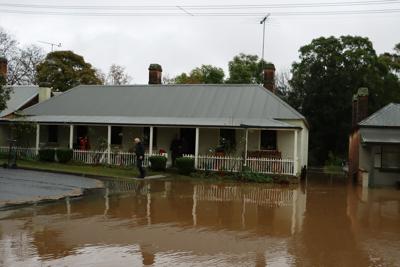
Americans experienced a record-setting 28 “billion-dollar” natural disasters in 2023. That’s 28 separate extreme weather events, like fires, floods, or tornado outbreaks, that each resulted in more than $1 billion in insured losses.
This is not what any homeowner wants to hear. Nor is it comforting to any vehicle owner or renter who worries about where they’ll go if their home is rendered uninhabitable. But, unfortunately, it’s reality. As America’s built environment continues to expand and weather grows more unpredictable, we’re sure to see more of the same with each passing year.
The best defense against a damaging storm or natural disaster is preparation. Here’s what you need to know now about what to do after the worst happens.
1. You Should Consult a Structural Engineer If Your Home Appears to Have Serious Damage
Don’t take your insurance claim adjuster’s word for it, and certainly not your non-expert neighbor’s. Instead, hire a structural engineer to inspect your home after a major wind or flooding event, even if it doesn’t appear to have sustained serious damage. Built-environment experts like ABB’s Karim Allana know what to look for in possibly compromised structures — and peace of mind is worth every penny.
2. Your Property Insurance Might Not Cover Everything
Have you actually read your homeowner’s insurance policy? It probably runs 20 pages or longer and has a laundry list of technical terms that might not mean much to you.
Your insurance agent should be able to walk you through it — if you have one. Otherwise, you could be in for an unwelcome surprise when you learn that your insurance company won’t pay the full cost for a new roof or replace flooring damaged by standing water. Avoid that entirely by reviewing your policy now and adding coverage before disaster strikes.
3. You Need to Protect Your Most Important Documents
Your insurance policy can’t magically replace important documents destroyed by fire or water. Replacing your birth certificate, Social Security card, passport, and other critical pieces of paper and plastic is no easy feat.
Prepare for the worst by putting all that stuff in a fireproof box and storing it somewhere that’s unlikely to be flooded, like an attic or second-floor closet. You might pay $100 or $150 for a high-quality box from name brands like SentrySafe, but that’s a small price now to avoid a big headache later.
4. It Could Take Months to Get Your Home Repaired and Your Insurance Claim Approved
And the worse the disaster, the longer you should expect to wait. So make sure you have enough saved up to cover emergency expenses, including a hotel room for your family. Yes, even if your insurer says they’ll pay for you to stay somewhere while your home remains uninhabitable.
5. You Might Be Eligible for State or Federal Disaster Assistance, But Use Caution
If the federal government declares a disaster in your area, you may be eligible for housing and financial assistance from national agencies like FEMA. However, it’s also likely that you’ll be targeted by scammers offering false promises of relief. Know how to spot the signs of a “disaster scam” and the proper procedures for requesting state and federal aid.
One Day at a Time
No matter how prepared you imagine yourself to be, you’re never truly ready for a disaster. The practical consequences of finding yourself without a habitable home, shorn of some or all of your possessions, are nothing short of extraordinary. The emotional toll, of course, is even worse.
All you can do is put your disaster plan into action and take it one day at a time. With time and good fortune, you’ll get through the ordeal and emerge stronger on the other side.




(0) comments
We welcome your comments
Log In
Post a comment as Guest
Keep it Clean. Please avoid obscene, vulgar, lewd, racist or sexually-oriented language.
PLEASE TURN OFF YOUR CAPS LOCK.
Don't Threaten. Threats of harming another person will not be tolerated.
Be Truthful. Don't knowingly lie about anyone or anything.
Be Nice. No racism, sexism or any sort of -ism that is degrading to another person.
Be Proactive. Use the 'Report' link on each comment to let us know of abusive posts.
Share with Us. We'd love to hear eyewitness accounts, the history behind an article.